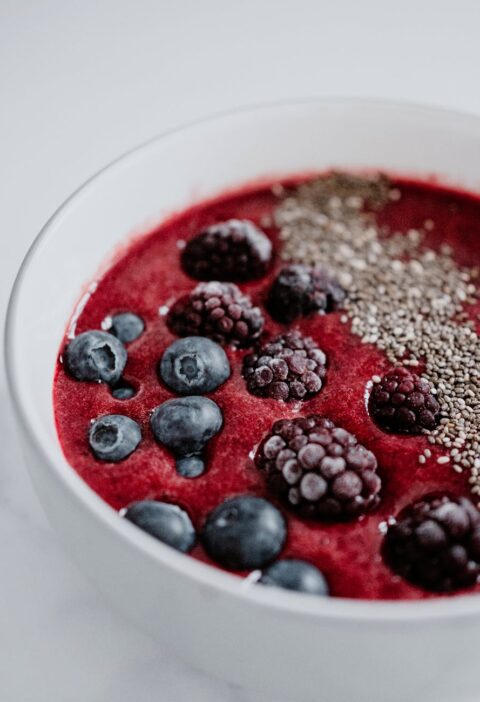The Ultimate Guide to Mediterranean Salads for Weight Management
Maintaining a healthy weight is a journey, not a race, and finding delicious and satisfying ways to achieve your goals is key. This guide delves into the world of Mediterranean salads, highlighting their incredible potential for weight management. We’ll explore the nutritional powerhouses packed into these vibrant dishes, revealing how their composition supports weight loss and overall well-being. We’ll discuss the best ingredients to include, offer creative variations to avoid monotony, and provide practical tips to ensure you’re making the most of this healthy and flavorful approach to eating. Prepare to discover how a simple salad can become a cornerstone of your weight management strategy, offering a delightful and effective path toward a healthier you.
Why Mediterranean Salads?
Mediterranean salads excel in weight management due to their unique combination of ingredients. They are typically high in fiber, which promotes satiety and helps regulate blood sugar levels, preventing those mid-afternoon cravings. The abundance of vegetables provides essential vitamins, minerals, and antioxidants, supporting overall health and metabolism. Lean protein sources, like chickpeas or grilled chicken (in moderation), offer sustained energy and help build and repair tissues. Finally, the healthy fats found in olive oil contribute to satiety and are crucial for hormone production and nutrient absorption. Unlike many low-calorie diets, this approach prioritizes whole, unprocessed foods, leaving you feeling full and satisfied, reducing the likelihood of unhealthy snacking.
Ingredient Spotlight: Building Your Perfect Salad
The beauty of Mediterranean salads lies in their versatility. The core components typically include a base of leafy greens (spinach, romaine, arugula), a variety of colorful vegetables (tomatoes, cucumbers, bell peppers, red onion), and a healthy protein source (chickpeas, lentils, grilled chicken or fish, feta cheese in moderation). Don’t forget the healthy fats! A drizzle of extra virgin olive oil and a squeeze of lemon juice add flavor and nutritional benefits. Consider adding olives, herbs (oregano, basil, mint), and a sprinkle of seeds (sunflower, pumpkin) for extra texture and nutrients.
Creative Variations to Keep It Interesting
To avoid salad fatigue, experiment with diverse combinations. Try a quinoa salad with roasted vegetables and herbs, a vibrant Greek salad with feta and Kalamata olives, or a hearty chickpea and lentil salad with a lemon-tahini dressing. Incorporate seasonal fruits like grapes or oranges for added sweetness and antioxidants. Remember to adjust portion sizes to meet your individual caloric needs. Prepping ingredients in advance and storing them in airtight containers can make building a quick and healthy salad a breeze.
Portion Control and Meal Timing
While Mediterranean salads are nutritious, portion control is still crucial for weight management. Be mindful of serving sizes, especially when incorporating higher-calorie ingredients like cheese or nuts. Consider making salads the main component of your lunch or dinner, paired with a small portion of lean protein if needed. Avoid consuming large salads right before bedtime to allow for proper digestion.
| Salad Variation | Approximate Calories (per serving) | Protein (grams) | Fiber (grams) |
|---|---|---|---|
| Greek Salad | 300-400 | 10-15 | 8-10 |
| Chickpea & Lentil Salad | 250-350 | 15-20 | 12-15 |
| Quinoa Salad with Roasted Vegetables | 350-450 | 12-18 | 10-12 |
Conclusion
Mediterranean salads offer a delicious and effective approach to weight management. Their combination of fiber, lean protein, healthy fats, and an abundance of vitamins and minerals promotes satiety, supports metabolism, and contributes to overall well-being. By incorporating a variety of colorful vegetables, healthy protein sources, and a flavorful dressing, you can create numerous satisfying and nutritious salads. Remember to prioritize portion control and consider meal timing for optimal results. Embrace the versatility of Mediterranean salads, experiment with different ingredients and combinations, and enjoy the journey towards a healthier, happier you. The key to success lies in consistency and finding a sustainable, enjoyable approach to healthy eating—and Mediterranean salads make that remarkably easy.
Image by: Daniela Elena Tentis
https://www.pexels.com/@daniela-elena-tentis-118658





